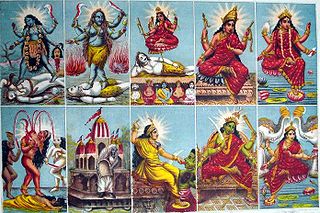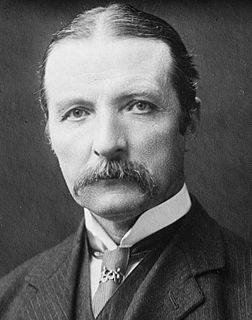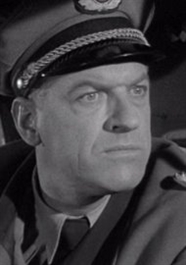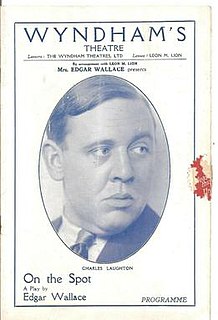
The Mahavidya are a group of ten aspects of Adi Parashakti in Hinduism. They are all forms of Goddess Parvati. After the decline of Buddhism in India, these forms of the Goddess began to be attested in the Kaula Tantrika literature. The 10 Mahavidyas are Kali, Tara, Tripura Sundari (Shodoshi), Bhuvaneshvari, Tripura Bhairavi, Chhinnamasta, Dhumavati, Bagalamukhi, Matangi and Kamala.

William Archer was a Scottish writer and theatre critic, based, for most of his career, in London. He was an early advocate of the plays of Henrik Ibsen, and was an early friend and supporter of Bernard Shaw.

The Uraeus is the stylized, upright form of an Egyptian cobra, used as a symbol of sovereignty, royalty, deity and divine authority in ancient Egypt.

Una O'Connor was an Irish-American actress who worked extensively in theatre before becoming a character actress in film and in television. She often portrayed comical wives, housekeepers and servants.

Hedjet is the formal name for the white crown of pharaonic Upper Egypt. After the unification of Upper and Lower Egypt, it was combined with the deshret, the red crown of Lower Egypt, to form the pschent, the double crown of Egypt. The symbol sometimes used for the white crown was the vulture goddess Nekhbet shown next to the head of the cobra goddess Wadjet, the uraeus on the pschent.

Eric Harold Portman was an English stage and film actor. He is probably best remembered for his roles in several films for Michael Powell and Emeric Pressburger during the 1940s.

The Arts Theatre is a theatre in Great Newport Street, in Westminster, Central London.

John Michael Terence Wellesley Denison was an English actor.

The Blind Goddess is a lost 1926 American silent mystery film directed by Victor Fleming. It was produced by Famous Players-Lasky and released by Paramount Pictures. The film is based on the novel, The Blind Goddess, by Arthur Cheney Train.
Blind Justice may refer to:

Lady Justice is an allegorical personification of the moral force in judicial systems. Her attributes are a blindfold, a balance, and a sword. She often appears as a pair with Prudentia, who holds a mirror and a snake.
Samuel George Herbert Mason, known as Herbert Mason, was a British film director, producer, stage actor, army officer, presenter of some revues, stage manager, stage director, choreographer, production manager and playwright. He was a recipient of the Military Cross the prestigious award for "gallantry during active operations against the enemy." He received the gallantry award for his part in the Battle of Guillemont where British troops defeated the Germans to take the German stronghold of Guillemont.

The Blind Goddess is a 1948 British drama film directed by Harold French and starring Eric Portman, Anne Crawford and Hugh Williams. The screenplay concerns a secretary who sets out to his expose his boss, Lord Brasted, for embezzlement. It was based on a popular play of the same title by noted barrister Patrick Hastings. Claire Bloom made her screen debut in the film.

Tom Gill was a British actor who was born in Newcastle upon Tyne, Northumberland, England. He made his stage debut in 1935, and his theatre work included the original production of Noël Coward's After the Ball at the Globe Theatre in 1954.

On the Spot is a 1930 Chicago-set play by the British writer Edgar Wallace. Wallace was inspired by a visit to the United States and, in particular, the Saint Valentine's Day Massacre. Known as a prolific author, he reportedly dictated the manuscript for the play in just four days. It was his greatest theatrical success.
The Calendar is a 1929 play by the British writer Edgar Wallace. It is a crime thriller set in the world of horse racing world, the sport being among Wallace's interests. The protagonist is a financially-struggling racehorse owner with a shady reputation. It premiered at the Palace Theatre in Manchester before transferring to Wyndham's Theatre in the West End.
The Old Man is a 1931 mystery play by the British writer Edgar Wallace. Its original production was staged at Wyndham's Theatre in London's West End for a ninety performance run. It is set entirely in the "Coat of Arms" tavern where a mysterious old man lurks in the background, reputedly an escapee from a lunatic asylum. The original cast included Alfred Drayton, Jack Melford, Harold Warrender and Finlay Currie.
The Terror is a 1927 mystery thriller play by the British writer Edgar Wallace. It is based on Wallace's 1926 novel The Black Abbot.
Dorothy Brandon was a British playwright active in the interwar years. Her greatest West End success was the 1923 medical drama The Outsider which was revived several times, and adapted into films on three occasions.













